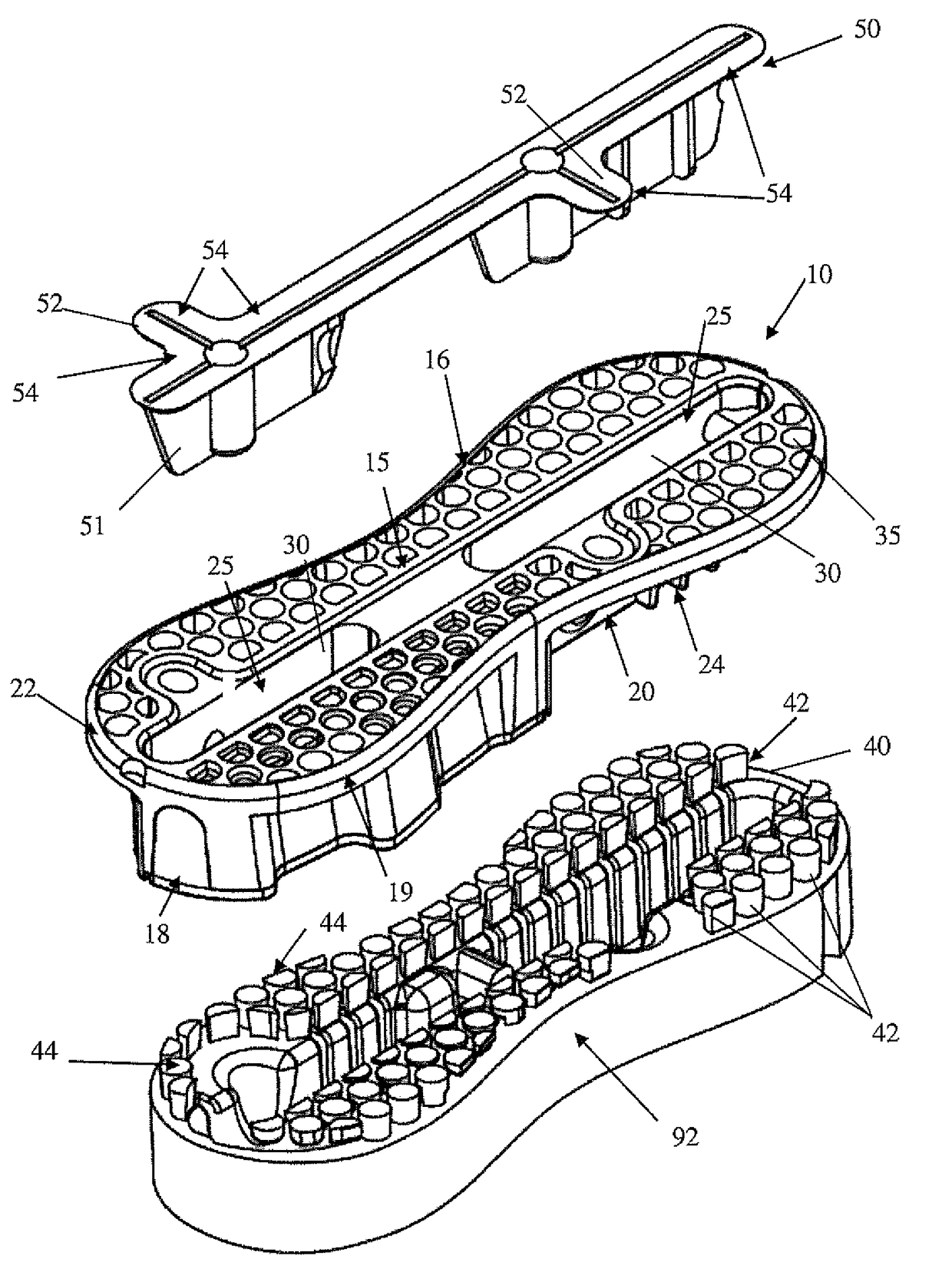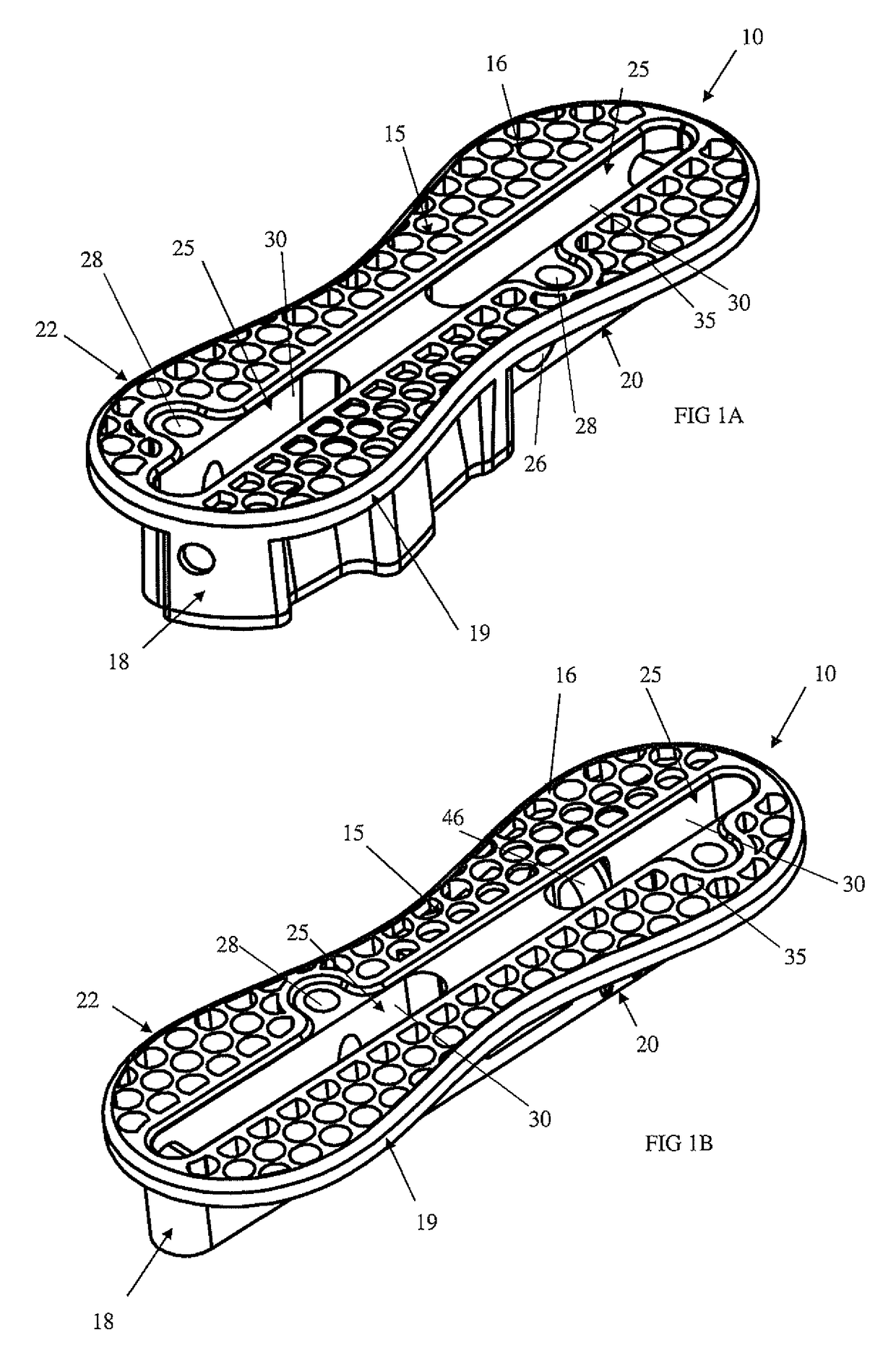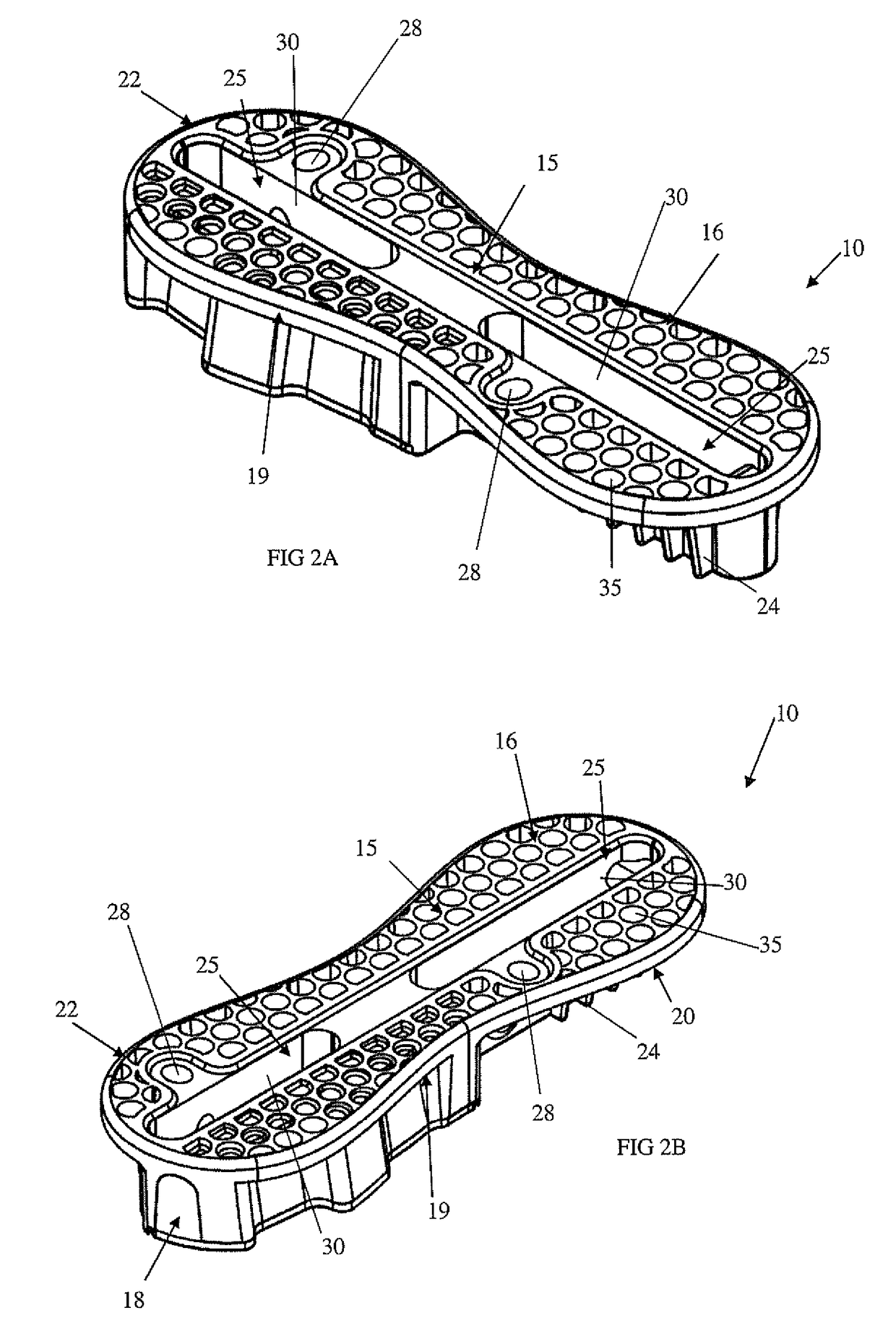Fin plug for a water craft
a technology for fin plugs and watercraft, which is applied in the field of fin plugs, can solve the problems of affecting the installation process, and affecting the installation process, and surrounded by the relatively low density foam of which the surfcraft is formed, so as to achieve the effect of reducing the installation process
- Summary
- Abstract
- Description
- Claims
- Application Information
AI Technical Summary
Benefits of technology
Problems solved by technology
Method used
Image
Examples
second example manufacturing
Technique of the Composite Foam and Fin Plug Assembly.
[0206]An alternative to the first example manufacturing technique is to sacrifice the first cavity insert at step 6) when excess foam is being removed. In situations where the foam has covered the top surface 15 and the cavity insert 50, it may be more economic and time efficient to use a router or other tool to remove the foam above the cavity insert without precautions to maintain the integrity of the cavity insert. A new cavity insert may be used to replace the cavity insert used in foam moulding. The new cavity insert would also have the cross hair markers 54 for guiding the positioning of the second template guide when using a router to obtain access to the fin cavities through the glass layer 60.
[0207]The use of a sacrificial cavity insert may then be used for the forming of the composite foam and fin plug assembly of the first example for the example Figures referenced. It may be particularly useful where the excess of foa...
PUM
 Login to View More
Login to View More Abstract
Description
Claims
Application Information
 Login to View More
Login to View More - R&D
- Intellectual Property
- Life Sciences
- Materials
- Tech Scout
- Unparalleled Data Quality
- Higher Quality Content
- 60% Fewer Hallucinations
Browse by: Latest US Patents, China's latest patents, Technical Efficacy Thesaurus, Application Domain, Technology Topic, Popular Technical Reports.
© 2025 PatSnap. All rights reserved.Legal|Privacy policy|Modern Slavery Act Transparency Statement|Sitemap|About US| Contact US: help@patsnap.com



